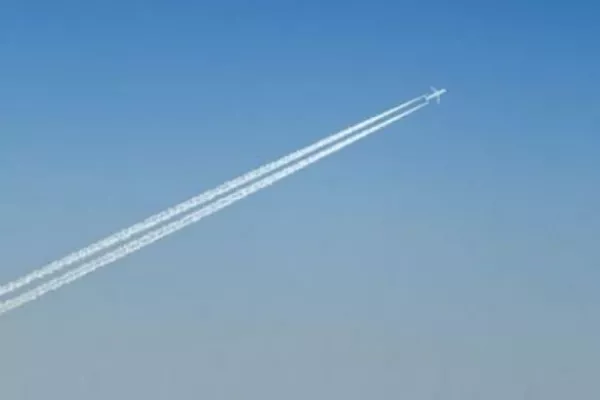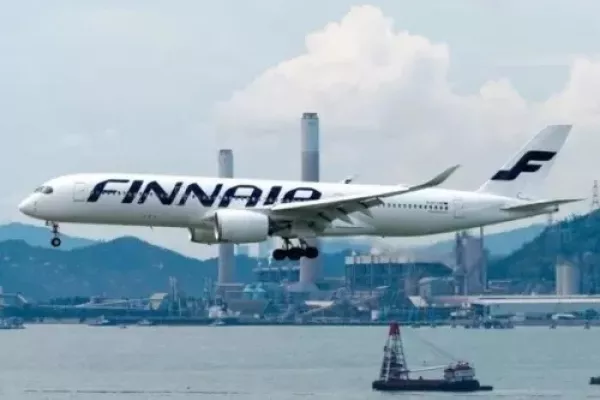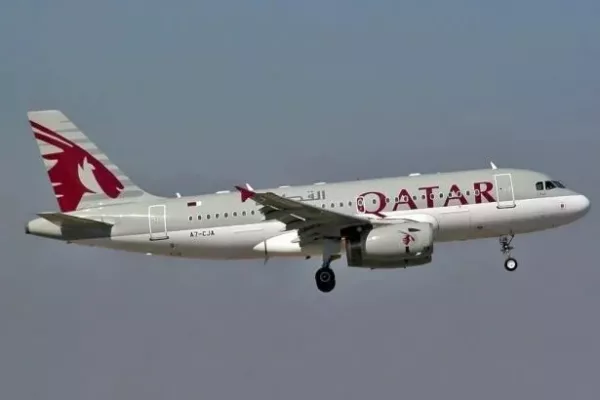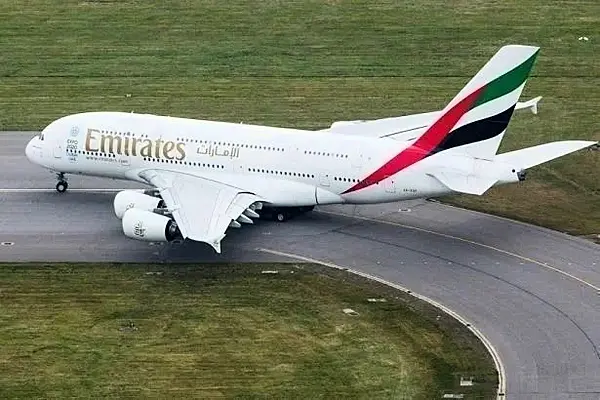Hospitality Ireland presents a round-up of global travel, airline and aviation news.
Royal Caribbean says 48 passengers test positive for COVID-19 on ship
Royal Caribbean Group said on Monday December 20 48 people on its Symphony of the Seas cruise ship tested positive for COVID-19, fueling concerns that the new Omicron variant of the coronavirus could put a damper on a recovery in the cruise industry.
The cruise operator said it had 6,091 guests and crew members on board the ship, which ended a week-long cruise in Miami on Saturday December 18 after setting sail on Dec. 11.
The passengers who tested positive were asymptomatic or mildly symptomatic, Royal Caribbean said in a statement, adding that six guests were disembarked earlier in the cruise and transported home.
Royal Caribbean said 95% of the community on board were fully vaccinated, while 98% of those who tested positive were also fully vaccinated.
Symphony's future itineraries are not impacted, it added.
Carnival's Long-Term Demand Indicates Omicron Threat Will Fade Soon
Carnival Corp on Monday December 20 flagged a hit to its near-term bookings from Omicron, even as demand for cruises late next year and beyond suggest a short-lived impact from new coronavirus variants.
Shares of Carnival gained 3.3% as the cruise operator said new COVID-19 variants have not had a significant impact on its plan to return its full fleet to operations in the spring of 2022.
The fast-spreading COVID-19 Omicron variant has been a cause of concern over the last month, creating some volatility in near-term bookings for Carnival and its rivals Norwegian Cruise Line Holdings and Royal Caribbean Group.
Royal Caribbean said on Monday 48 of 6,091 guests on its Symphony of the Seas, the biggest cruise ship in the world, tested positive for COVID-19.
"People are not cancelling their plans for May, June, July, August, because of Omicron ... Any cancellations or hesitation is really isolated to the next month or two," Deutsche Bank analyst Chris Woronka said.
Carnival forecast a return to profitability in the second half of 2022 after a net loss in the first. "2022 will be a tale of two halves," Chief Financial Officer David Bernstein said on an earnings call.
The company, which owns Cunard and Holland America Line brands, said bookings for the second half of next year and first half of 2023 were at the higher end of historical ranges even as higher prices appeared to dampen a little enthusiasm among cruisers.
Adjusted net loss widened to $1.96 billion from $1.86 billion in the fourth quarter, as the company spent heavily on preparing its ships across its several brands for sailings.
Revenue rose to $1.29 billion in the fourth quarter from $34 million a year earlier. Analysts had expected $1.41 billion, according to IBES data from Refinitiv.
Air New Zealand Outlines Requirements For Low-Emissions Turboprops
Air New Zealand Ltd said on Tuesday December 21 it had outlined requirements to suppliers as part of plans to replace its fleet of De Havilland Canada Dash 8 Q300 turboprops with lower-emissions technology by around 2030.
"The ideal candidate aircraft will be a drop in replacement for the Q300 for seamless integration into the existing Air New Zealand turboprop network, which may include retrofit of the existing aircraft," the airline said.
The plan to seek proposals by March 2022 comes as companies pour more resources into developing cleaner turboprop technology to help airlines meet a challenging industry-wide target of net zero emissions by 2050.
Private equity-owned De Havilland signed a memorandum of understanding last week with hydrogen-electric-engine developer ZeroAvia to develop line production and retrofit programmes for its turboprop models that could be certified this decade.
Another company, Universal Hydrogen, is developing hydrogen conversion kits for Dash 8s and ATR72s and has signed a letter of intent for Dash 8 conversions with Icelandair Group.
Universal Hydrogen signed an agreement last month with Australia's Fortescue Future Industries to develop green hydrogen and logistics hubs in New Zealand.
Air New Zealand said 7% of its carbon emissions in the 2019 financial year came from its fleet of Q300 and ATR72 turboprops, which fly on domestic routes mostly shorter than 350 km (217 miles) and will be the easiest to replace with new-technology planes.
The airline's 23 50-seat Q300s are on average a decade older than its 29 68-seat ATR72s, meaning they will be due for replacement earlier.
Air New Zealand has already signed agreements with Airbus SE and ATR, a joint venture between Airbus and Italy's Leonardo, to study low-emissions aircraft. The airline said on Tuesday December 21 it hoped to get a one- to nine-seat low-emissions plane for training or freight missions by 2025.
Qatar Airways Sues Airbus In A350 Jet Damage Dispute
Qatar Airways said on Monday December 20 it had started proceedings in a UK court against planemaker Airbus in a bid to resolve a dispute over skin flaws on A350 passenger jets, bringing the two sides closer to a rare legal showdown over aviation safety.
The companies have been locked in a row for months over damage, including blistered paint and corrosion to a sub-layer of lightning protection, which Qatar Airways says has now led to the grounding of 21 A350 jets by its domestic regulator.
Airbus insists the carbon-composite passenger jets are safe to fly despite some "surface degradation," while Qatar Airways says it is too early to say whether safety has been compromised.
The dispute came to a head last week when Airbus, in what experts called an unprecedented move, accused the Gulf airline of misrepresenting the problem as a safety issue and threatened to call for an independent legal assessment.
On Monday December 20, Qatar Airways hit back, saying it had taken its complaint against Airbus to the High Court in London.
"We have sadly failed in all our attempts to reach a constructive solution with Airbus in relation to the accelerated surface degradation condition adversely impacting the Airbus A350 aircraft," it said in a statement. "Qatar Airways has therefore been left with no alternative but to seek a rapid resolution of this dispute via the courts."
In a statement late on Monday, Airbus confirmed it had received a formal legal claim. "Airbus intends to vigorously defend its position," it said.
A spokesman earlier reiterated it had found the cause of the problem and was working with customers and Europe's safety regulator, which has said it has not identified a safety issue.
Qatar Airways denies that the surface flaws - which witnesses say have left some of the jets with a pock-marked appearance - are properly understood and said on Monday that it wanted Airbus to mount a "thorough investigation".
Several industry executives said such a public legal fight between two of aviation's leading players is unprecedented.
The row widened this month when documents seen by Reuters revealed at least five other airlines in varying climates had complained about paint or other surface problems since 2016. Airbus had until recently maintained the problem was focused on paint on Qatar's A350s, based in the Gulf.
Reuters also first reported that Airbus was looking at changing the anti-lightning system.
The planemaker has said it is proposing interim solutions ranging from repairs to repainting and has accused Qatar Airways of ignoring those proposals without reasonable justification.
Qatar Airways reiterated on Monday December 20 it could not be sure whether proposed repairs would work without deeper analysis. Its chief executive has questioned why Airbus is still working on a solution if a reliable fix is already available.
The 21 grounded jets represent 40% of its current fleet of A350s, for which it was the launch customer with the biggest order. Other airlines still operate the jet, saying its airworthiness is not affected by what they term cosmetic issues.
The row meanwhile looks set to cost Airbus a big Qatar order for a new A350 freighter version. It received the first firm order for the model on Monday December 20, confirming a previously tentative order for four planes from France's CMA CGM.
Qatar Airways Chief Executive Akbar Al Baker told the South China Morning Post last week he had previously looked at placing a large order for the cargo A350. Sources now expect Boeing to win the order to replace Qatar's 34-35 freighters.
News by Reuters, edited by Hospitality Ireland. Click subscribe to sign up for the Hospitality Ireland print edition.









